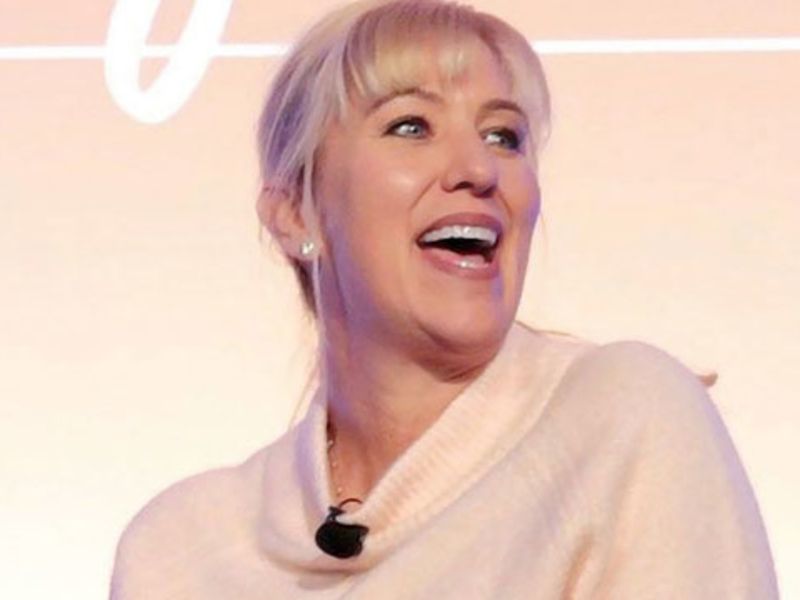
Laura Schwab‘s gender discrimination lawsuit against Rivian paints an unflattering picture of the electric vehicle startup’s corporate culture, one that is at odds with one of company founder and CEO RJ Scaringe‘s stated principles: valuing diversity.
Schwab said she was fired from her role as Rivian’s vice president of sales and marketing on Oct. 15, after less than a year on the job, and alleged that the company’s “toxic bro culture” derailed her career.
In addition, she said problems began less than six months into the job, when she began raising concerns about the company’s ability to “deliver on promises to investors.”
She wants Rivian’s work practices declared unlawful under California’s labor code and seeks reimbursement for the suit’s costs and “other further relief that the court may deem just and proper.”
Rivian confirmed to Automotive News that Schwab was no longer employed there but would not comment further. The company is in a federally mandated “quiet period” while preparing for an initial public offering that could value it at more than $50 billion.
Schwab, 48, joined Rivian last fall after being recruited from Aston Martin, where she was president of the Americas for five years. She also had a long career at Jaguar Land Rover, where she rose to marketing director for the British automaker’s U.K. operations.
In 2020, she was named one of Automotive News‘ 100 Leading Women in the North American Auto Industry.
Her job at Rivian was to set up the sales and marketing operations for the automaker, headquartered in Irvine, Calif., as it began the pivot from startup to revenue-generating company. Her base salary was $360,000 per year; she was eligible for a 40 percent bonus; and she received other incentives.
The lawsuit, announced by Schwab on Medium, states that she did not believe the company could sell its vehicles profitably and would have to raise prices. She was not convinced the manufacturing process could produce a safe and reliable vehicle and she thought the company’s delivery dates were “not achievable.”
Schwab’s supervisor, Jiten Behl, Rivian’s chief commercial and growth officer, the suit says, asked her not to “raise these issues in front of Scaringe.”
The company set a December 2020 date for the first deliveries of its highly anticipated R1T electric pickup, a deadline that would be pushed back several times. Across the globe, automakers and their supply chains have been slowed the microchip shortage, which compounded production problems related to the COVID-19 pandemic.
The company’s first customer deliveries of the R1T finally took place late last month. It remains unclear whether Rivian will meet its goal of delivering 1,000 pickups to customers by the end of next month or whether the Launch Edition of the R1S electric SUV remains on track to be delivered by then as well.
As of late October, only two R1Ts per day were rolling off the assembly line at the Rivian plant in Normal, Ill. The company is also under pressure to meet its obligation of delivering 100,000 electric delivery vans to Amazon. Rivian hopes to build 10,000 of the vans in 2022.
The suit contends that not long after Schwab began her job at Rivian, her “check-ins” with Scaringe became infrequent and that she was often excluded from strategy meetings that covered areas in which her team would be expected to take a leading role.
In a video posted on the careers section of Rivian’s website, Scaringe lays out his vision for how he expects employees to work together:
“The most important thing to do for the business is building the organization. So, technology fades, product positioning, you know, can be copied, the way we look at and the way we think about segmentation, that can be copied. The strength of the organization we build and the way we work together and the culture in which we operate, that’s the only real long-term sustainable advantage. I think we have a real opportunity in that regard to create an organization that, across different locations, across different skill sets, we have empathy for one another, that we realize we are part of one team, you know, with arms locked, building something together.”
Two days after Schwab complained to Rivian’s human resources department about how she was being excluded from meetings and that she was being marginalized by male co-workers, Behl told Schwab that her job was being eliminated in a reorganization, according to the lawsuit.
Schwab was the only employee let go, and it came just weeks before salable trucks started rolling off the line.
The high-profile firing could complicate Rivian’s effort to build out its executive team, says Jeff McConnell, an Atlanta executive recruiter at search firm Koblentz Group.
“Given how well regarded she has been up to now, given that this isn’t the first time the ‘bro culture’ has come up in lots of places, it really creates a problem,” McConnell told Automotive News.
“The two most important things that people are asking when we are doing searches are: ‘How’s the leadership, and what’s the culture?’ They want to be sure they are going to a place where they have every chance of being successful,” he added.
McConnell said a second gender discrimination suit would be especially worrisome for Rivian.
On Rivian’s organization chart, five of the top 20 corporate leaders are women. That number does not include Schwab.
Unless there is a settlement, legal proceedings in Schwab’s case will start in April in Santa Ana, Calif.
Former Aston Martin CEO Andy Palmer came to Schwab’s defense late Thursday in a tweet: “Laura is one of the most professional Sales & Marketing Execs I’ve had the pleasure to work with,” the tweet said. “I’ve no idea why you’d hire someone of this quality and then not listen to them!”

